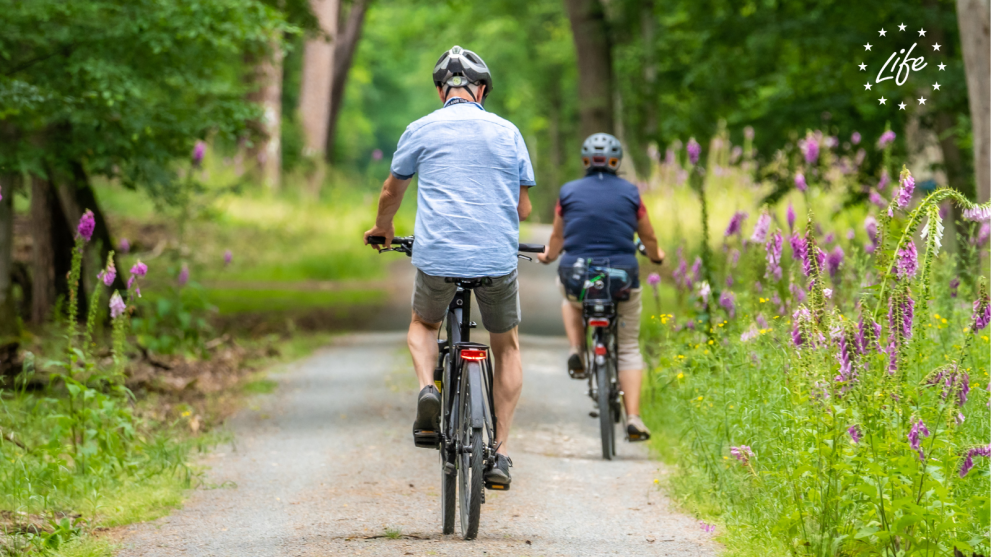
By getting on your bike in the most southernly part of Portugal and following a network of 17 routes, you could finish at the top of Norway. This colourful crisscrossing of lines is EuroVelo – the pan-European cycle routes that can be travelled by bicycle, coast to coast in all directions. It is one of the many initiatives driven by the European Cyclists’ Federation (ECF), the European umbrella organisation for cycling with more than 70 members in over 40 countries. LIFE Programme has supported the ECF since 2015 via the call for proposals for NGO Operating Grants.
Annual observance days such as World Bicycle Day – celebrated in June – promote the benefits of cycling, of which there are plenty; improved health and wellbeing, lower obesity levels, cleaner air, reduced impact of traffic emissions, a boost to economics, and faster commuting in city centres. The ECF is dedicated to achieving more and better cycling across the continent by bringing together stakeholders of the cycling world to change attitudes, policies and budget allocations. Its 2030 Strategy aims to get Europeans on bikes safely, with stronger political support, and more investment in cycling infrastructure.
Policy areas include modal shift, safety, cycling tourism and rural connectivity, urban mobility, thought leadership and infrastructure. It is estimated that at least €6 billion must be spent in the 2021 - 2027 financial period on safe cycling projects to trigger a shift in transport behaviours and encourage citizens to use bicycles instead of cars.
The last year has seen cycling elevated to a strategic priority in Europe with the introduction of the European Declaration on Cycling, the first inter-institutional cycling policy at the European level. ECF, together with its industry partners, had long advocated for a unified cycling policy at the European level.
ECF's recent achievements range from the revision of the TEN-T guidelines to include the promotion of active transport within its objectives and priorities, to the adoption of the Energy Performance of Buildings Directive which establishes minimum requirements for bicycle parking in both residential and non-residential buildings.
A study in 2021 showed that in cities that built up pop-up cycle lanes, the number of cyclists has increased to 48%. This study included data from ECF’s COVID-19 cycling measures tracker and over 700 official bicycle counting stations in 106 European cities that installed temporary cycling infrastructure. ECF 2019 saw the revision of the EU Road Infrastructure Safety Management Directive, which obliges member states to take cyclists’ needs into account in major road investment.
However, there is always more to do. A new ECF report shows that Member States are still falling short of leveraging cycling to reduce greenhouse gas (GHG) emissions. To reach climate neutrality by 2050, Europe’s transport sector needs to reduce GHG emissions by 90% compared to 1990; through electrification of rail and clean fuels, but also active mobility, public transport and cycling.
As the most energy-efficient mode of transport, cycling must be a cornerstone of climate and energy policies. By using a bike instead of a car for one more trip a day, for 200 days, CO2 emissions are decreased by 0.5 tonnes a year. And with initiatives such as EU Ecolabel, EMAS for Sustainable Tourism, and Green Key to choose sustainable accommodation such as green hotels, and continuous improvements to EuroVelo, including route extensions and new paths, travelling across Europe sustainably could be as easy as riding a bike.
Details
- Publication date
- 24 July 2024
- Author
- European Climate, Infrastructure and Environment Executive Agency

